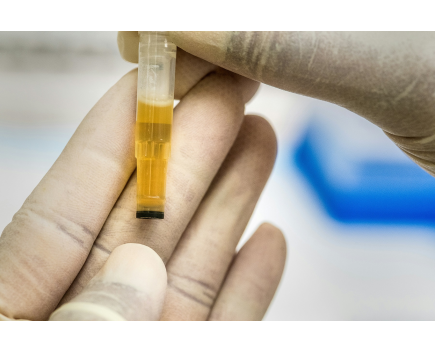
Does Kratom Show Up on a Drug Test?
People who consume kratom may worry about whether kratom will show up on a standard drug screen if they're applying for a new job, or have to face random drug screens at their current place of employment.












People who consume kratom may worry about whether kratom will show up on a standard drug screen if they're applying for a new job, or have to face random drug screens at their current place of employment.
Most standard 5-panel urine drug tests do not specifically screen for kratom. These tests typically focus on detecting common substances such as opioids, amphetamines, cocaine, marijuana, and benzodiazepines. Kratom is not a commonly included substance in standard drug panels, so it may not show up on most routine urine tests.
However, if there is a specific concern or suspicion regarding kratom use, a specialized test for kratom metabolites can be requested. These specialized tests can detect kratom's active compounds, such as mitragynine and 7-hydroxymitragynine, in urine samples.
Several companies that provide drug screening services have developed the ability to test for kratom in recent years, but most employers are unlikely to pay extra for legal herbs that they may not have heard of. A larger drug screen than standard, like a 10-panel screen instead of a 5-panel, may include kratom as one of the substances.
Kratom and a synthetic opioids like fentanyl, for example, are distinct substances with different chemical compositions, and they are not expected to show up as one another on drug tests. Standard drug tests are designed to detect specific substances or classes of substances based on their chemical structures and metabolic pathways.
Fentanyl is a synthetic opioid pain medication, while kratom is a plant-based substance derived from the leaves of the Mitragyna speciosa tree. They have different pharmacological properties and are metabolized differently in the body. Therefore, a drug test specifically targeting fentanyl should not detect kratom, and vice versa.
However, it's essential to note that some drug tests may not distinguish between different opioids or may produce false positives. For accurate results and to differentiate between specific substances, including kratom and fentanyl, specialized tests or confirmatory testing methods may be necessary.
A 2020 study showed that the presence of kratom produced a false positive for methadone on opioid drug screenings. Specifically, 7-hydroxymitragynine, a metabolite of kratom's main alkaloid, mitragynine, showed up on the screen as 2-ethylidene-1,5-dimethyl-3,3-diphenylpyrrolidine (EDDP), a metabolite of methadone.
Comments
Leave your comment